We make your Shopify experience easy. Mid-sized ecommerce brands trust us because we know our stuff. You have a vision—we handle the tech so you don't stress. Let's bring your idea to life!
Consistently 5-star rated

🎉 95% of Our Clients Launch Their Shopify Stores On Time!

+
Years in Business
For over 20 years, we've partnered with mid-sized companies to deliver custom e-commerce development solutions on Shopify, BigCommerce, and Magento.
+
Happy Clients
More than 50 satisfied clients trust us to bring their Shopify visions to life.
+
Projects Delivered
We've successfully completed over 100 projects - and we're quickly growing!
Our portfolio spans diverse industries, consistently delivering measurable results and long-term client success.
20+ years mastering Shopify. We craft custom code and deploy advanced features to deliver flawless performance.
We're fast, and communicate direclty with a nimble approach, so you never get lost in the red tape of a big agency.
We have the expertise to tackle complex projects while keeping our solutions cost‑effective and tailored for growing businesses.
Choose the model that fits your needs—whether it’s hourly retainers, project-based work, or phased approaches, we adapt to your budget and goals.
Advanced Shopify builds that unlock powerful features—custom checkout scripts, automation with Shopify Flow, and multi‑store setups designed for high-volume growth.
Advanced API Integrations
Headless Commerce
Shopify Scripts
Advanced Security
Globalized eCommerce Selling
Sandbox Stores
B2B Ready
API Explorer
View Details
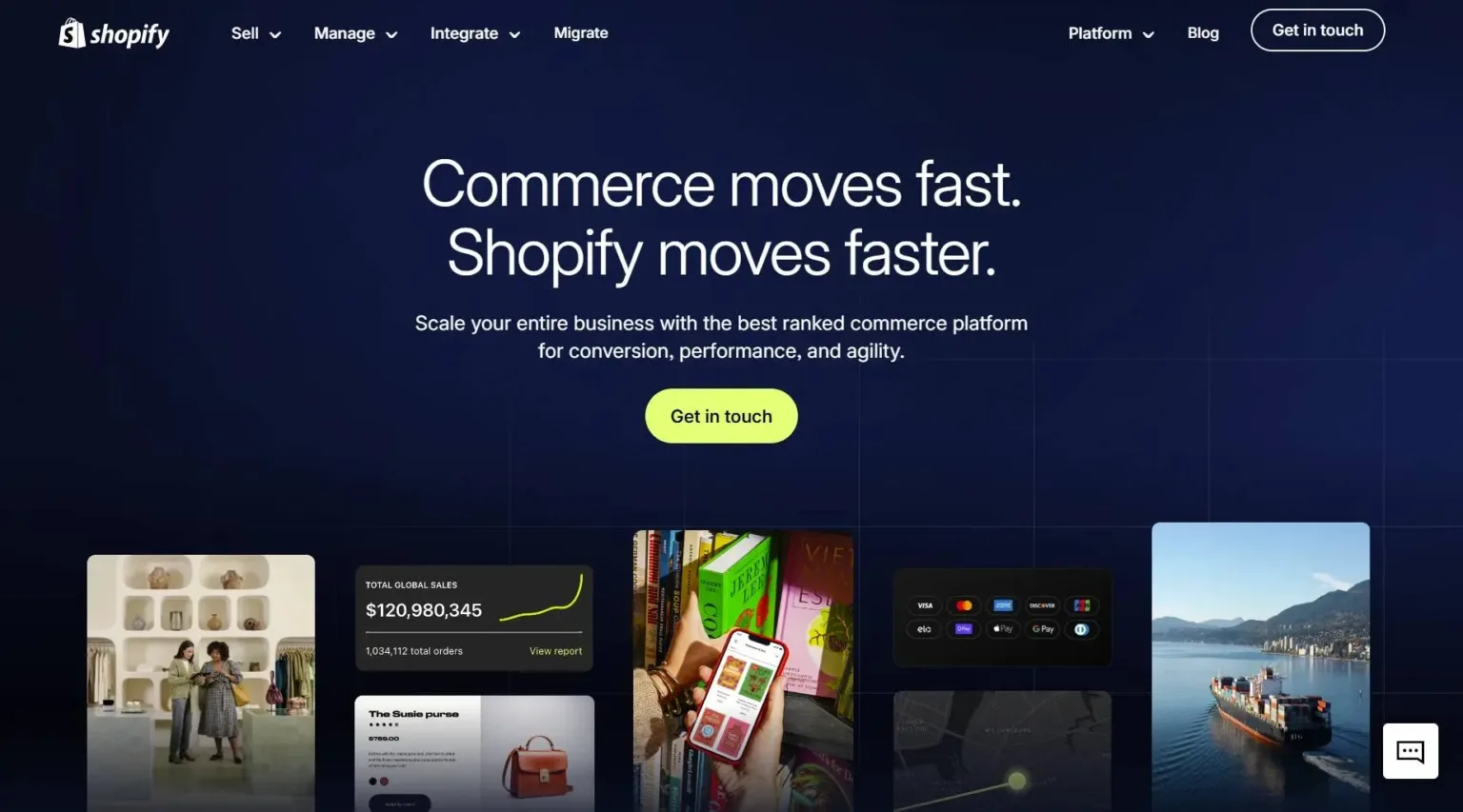
Growing online stores need more than just a basic website. They need a platform that can handle lots of sales, complex operations, and deliver great shopping experiences. That’s where Shopify Plus comes in.
Shopify Plus powers some of the biggest brands you know. Let’s look at why it matters if you’re outgrowing your current store.
Ever tried to buy something during a flash sale only to find the website crashed? Shopify Plus prevents that headache. It can process up to 10,978 checkouts per minute without slowing down.
This means you can focus on growing your business instead of worrying about your site crashing when things get busy. As Frederick from Karen Finch puts it:
“We were looking for someone who could work with all the challenges in our existing setup and do the best with what we had.”
One of the biggest perks of Shopify Plus is that you can completely customize your checkout pages. Regular Shopify doesn’t let you do this.
With Shopify Plus, you can:
– Match your checkout to your brand’s look
– Add custom fields to collect useful information
– Include trust badges to make customers feel secure
– Test different versions to see what sells better
According to Shopify, a better checkout can boost sales by 20-30%!
Running a big online store means doing lots of repetitive tasks. Shopify Plus has tools that handle these tasks automatically.
This tool lets you set up “if this, then that” rules for your store. For example, it can:
– Tag your best customers for special treatment
– Send alerts when inventory gets low
– Flag potentially fraudulent orders
When you launch a new product or run a sale, Launchpad can handle it all automatically:
– Make products visible at the right time
– Change prices when the sale starts
– Switch back when it ends
Which means, no more staying up until midnight to launch your Black Friday sale!
Shopify Plus works better with other business software thanks to its powerful connection options. This means your inventory system, customer service tools, and marketing platforms can all talk to each other.
Liz from Mixology appreciated this flexibility:
“I like that they gave us different options to fix our problems. They explained everything clearly so we could choose the best solution.”
If you sell to other businesses as well as regular customers, Shopify Plus makes it easy with:
– Special pricing for different customers
– Minimum order requirements
– Payment terms for business customers
– Company account management
This means you don’t need two separate websites for B2B and B2C sales.
Want to sell internationally? Shopify Plus lets you run up to 10 different stores from one dashboard. Each can have:
– Local currencies
– Translated content
– Different pricing
– Country-specific shipping rules
This helps you create stores that feel local to each market you serve.
Having Shopify Plus is great, but you need experts to get the most from it. A good Shopify Plus developer like Ecommerce Partners can help you use all these features effectively.
When choosing a developer, look for:
– Shopify Plus certification
– Technical know-how
– Understanding of your business goals
– Examples of successful projects
– Ongoing support options
Becky from QC Supply explains why having the right partner matters:
“They were a great thought partner for me and helped keep our project organized and moving forward. That was super valuable.”
Brands using Shopify Plus have seen amazing results:
Fire Dept. Coffee increased revenue 4X after upgrading to Shopify Plus.
LSKD grew US sales by 216% in one year using Shopify Plus’s international tools.
Shopify Plus works best for businesses that:
– Make over $1 million in annual sales
– Experience busy shopping periods
– Need custom features standard Shopify doesn’t have
– Sell internationally or through multiple channels
– Have complex business requirements
For businesses at this level, the investment in Shopify Plus typically pays off quickly through increased sales and lower transaction fees.
Shopify Plus gives growing brands powerful tools without the technical headaches of traditional enterprise systems. The right developer can help you create amazing shopping experiences while making your operations more efficient.
If you’re ready to take your online store to the next level, partner with experienced Shopify Plus developers who can help you make the most of the platform.
With proven experience implementing Shopify Markets, we craft localized storefronts, support multi-currency transactions, and enable seamless cross-border shopping.
International Pricing
Market Catalogues
Locally Required Order Data
Developer Preview
Payment Methods
View Details
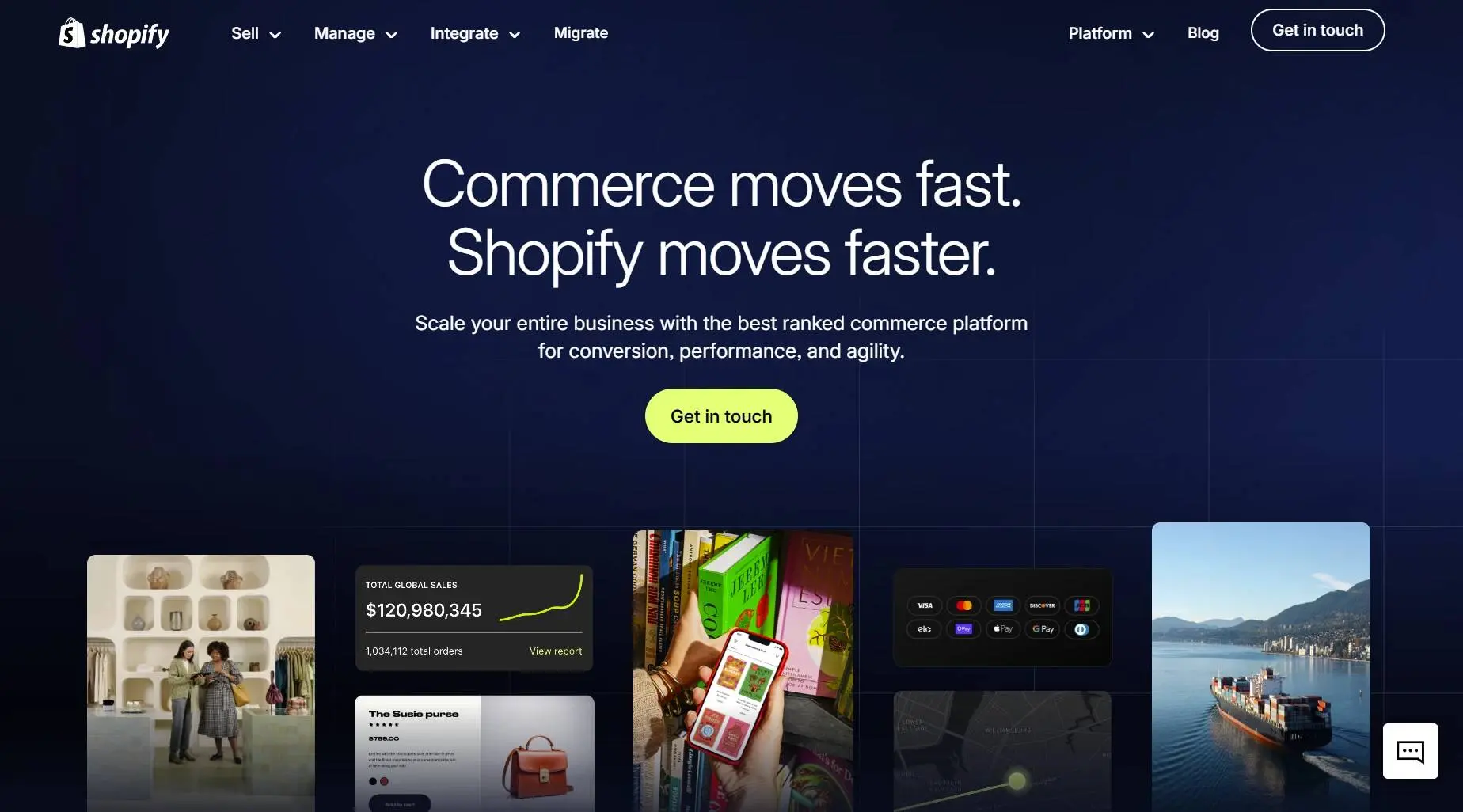
With proven experience implementing Shopify Markets, we craft localized storefronts, support multi-currency transactions, and enable seamless cross-border shopping.
Selling your products globally used to be a huge headache. Different currencies, shipping rules, and languages meant building separate stores for each country. Not anymore! Shopify Markets lets you sell internationally from a single store, and we’re experts at making it work for your business.
Shopify Markets is a built-in tool that turns your regular Shopify store into a global selling machine. It lets you create customized shopping experiences for different countries without building multiple websites.
According to Shopify, businesses using Shopify Markets see an average 40% increase in conversion rates for international customers. That’s because shoppers get prices in their local currency and a familiar shopping experience.
Nobody likes doing math while shopping! With Shopify Markets, customers see prices in their own currency. This builds trust and increases sales. You can either:
– Set fixed prices for each market
– Let prices automatically convert based on exchange rates
International taxes can be tricky. Shopify Markets can automatically:
– Calculate and collect the right taxes for each country
– Show customers their duty and tax costs upfront
– Collect payment for duties at checkout (DDP – Delivered Duty Paid)
This transparent approach prevents surprise fees for your customers when packages arrive.
Different countries have different preferences. With Shopify Markets, you can customize:
– Products available in each market
– Pricing strategies by region
– Payment methods locals prefer to use
– Language and content for each market
As Jackson from Wallie Cases found when working with Ecommerce Partners:
“They really helped us create a shopping experience that makes our international customers feel like our store was built just for them. Our conversion rates improved almost immediately.”
While Shopify Markets is powerful, setting it up correctly takes expertise. Here’s why working with a specialized development partner makes sense:
Before writing any code, we help you answer critical questions:
– Which countries should you target first?
– What products will perform best in each market?
– How should pricing differ between regions?
– What local payment methods do you need to support?
Our team handles the complex technical setup:
– Configuring market-specific domains or subdomains
– Setting up currency conversions and rounding rules
– Implementing geolocation for automatic country detection
– Optimizing for international SEO
Different regions prefer different payment methods. We’ll help you implement:
– Local payment options like Klarna, iDEAL, or Afterpay
– Region-specific credit card processing
– Alternative payment methods popular in specific markets
Brands working with experienced developers to implement Shopify Markets see impressive results:
Kotn expanded to serve customers in over 20 countries, seeing a 140% increase in international conversions after properly implementing localized experiences.
Our clients typically see 30-50% higher conversion rates from international visitors after implementing a properly configured Shopify Markets strategy.
Ready to take your store global? Here’s how we approach Shopify Markets implementation at Ecommerce Partners:
1. *Assessment*: We evaluate your current setup and international selling goals
2. *Strategy*: We create a customized markets implementation plan
3. *Development*: Our team configures Shopify Markets for your specific needs
4. *Testing*: We verify everything works perfectly for customers in each market
5. *Launch*: Your store begins selling globally with localized experiences
6. *Optimization*: We continuously improve performance based on real data
Don’t let borders limit your sales potential. With the right partner guiding your Shopify Markets implementation, the world becomes your customer base.
“The team at Ecommerce Partners made going global so much easier than we expected. They handled all the technical details while we focused on serving our new international customers.” – Frederick McDavid, Karen Finch
Drawing on extensive Shopify B2B expertise, we build tailored solutions that streamline wholesale operations, integrate innovative features, and drive success in the B2B arena.
Custom Pricing Models
Dedicated Customer Portals
Custom Storefronts
Multi-User Account Management
Quick Order Functionalities
Advanced Checkout Flows
Bulk Ordering
Payment Options
Seamless Integrations
View Details
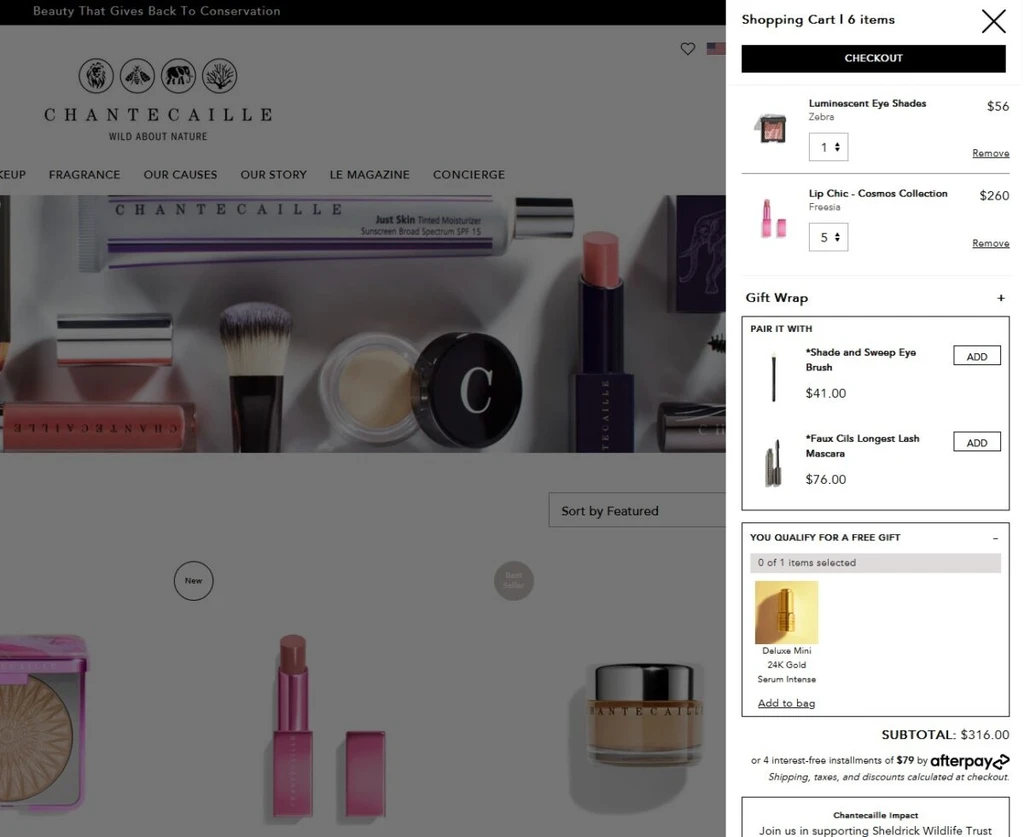
Drawing on extensive Shopify B2B expertise, we build tailored solutions that streamline wholesale operations, integrate innovative features, and drive success in the B2B arena.
Running a business that sells to other businesses used to mean maintaining two separate stores. Shopify B2B changes that by bringing both sales channels together in one powerful platform. It’s a specialized set of tools built into Shopify Plus that lets you sell to both regular consumers and other businesses from the same online store.
According to Shopify’s research, B2B ecommerce is growing rapidly, with the market expected to reach $20.9 trillion by 2027. Yet many wholesale businesses still rely on outdated processes like email order forms and phone calls. Shopify B2B bridges this gap by bringing wholesale into the digital age.
The heart of Shopify B2B is creating company-specific experiences with unique catalogs, pricing, and payment terms for each business customer. Your long-time wholesale partner sees different prices than a new business buyer or regular consumer. The system handles these relationships automatically, saving countless hours of manual work.
Shopify B2B includes features specifically designed to make wholesale ordering easy:
– Custom company accounts with different user roles and permissions
– Flexible payment options including net terms, purchase orders, and credit limits
– Specialized tools like quick reorders, minimum quantities, and bulk ordering
– Company-specific catalogs and pricing tiers
Frederick McDavid from Karen Finch shares his experience working with Ecommerce Partners:
“They transformed our wholesale process from a manual nightmare into a smooth digital experience. Our business customers can now place orders anytime, see their specific pricing, and track everything in one place.”
Order management becomes much simpler when all your sales flow through one system. Your inventory stays in sync, reporting covers all customer types, and your team follows consistent processes whether fulfilling consumer orders or large wholesale shipments. This reduces errors and improves efficiency across your operation.
Setting up an effective B2B store requires strategy, not just technical setup. We work with clients to define wholesale policies, pricing structures, and customer tiers before building. The implementation typically includes customizing your store’s customer portal, setting up company accounts, creating wholesale-specific checkout flows, and integrating with your business systems.
Paul Goodman from Vida Group notes:
“What impressed me most was how they took the time to understand our specific wholesale processes before suggesting solutions. They customized Shopify B2B to match exactly how we work with our business customers.”
Training your team and educating B2B customers about the new system is crucial for success. We provide documentation and training to ensure everyone can make the most of your wholesale capabilities.
Businesses implementing Shopify B2B see significant improvements in both efficiency and sales. Brooklinen saw their wholesale business grow from 15% to 30% of total revenue after implementing a proper B2B solution. Our clients report:
– Time savings of 15-20 hours per week from eliminating manual processing
– Higher average order values from B2B customers who reorder more frequently
– Valuable business intelligence across both B2C and B2B channels
Beyond sales impact, Shopify B2B creates valuable insights into purchasing patterns and trends that inform inventory decisions, marketing strategies, and product development.
Ready to transform your wholesale business? At Ecommerce Partners, we specialize in crafting B2B solutions that align with your business goals while delivering exceptional experiences for your wholesale customers. You can find more success stories on our B2B case studies page.
Develop or refine your Shopify theme for speed, flexibility, and optimal performance—ensuring your store not only looks great but runs flawlessly.
Customize Liquid Templates
Develop Responsive Designs
Optimize Performance
Integrate Third-Party Apps
Test And Debug For Compatibility
View Details

Develop or refine your Shopify theme for speed, flexibility, and optimal performance—ensuring your store not only looks great but runs flawlessly.
Your Shopify theme is the foundation of your entire online store. It determines not just how your store looks, but how it functions, performs, and converts visitors into customers. Whether you’re starting from scratch or upgrading an existing store, the right theme development approach can dramatically impact your business results.
According to Shopify research, a one-second delay in page load time can reduce conversions by up to 7%. That’s why professional theme development focuses on both aesthetics and technical performance. At Ecommerce Partners, we build themes that load fast, function smoothly, and drive sales.
Shopify’s theme store offers hundreds of pre-built themes, so why invest in custom theme development? The answer lies in differentiation and optimization. While template themes provide a solid starting point, they often include unnecessary code that slows your site down and limits your ability to create unique experiences.
Frederick McDavid from Karen Finch explains why they chose custom development:
“We had a lot of previous partners before, so it’s a custom theme with a lot of different codes. I wanted someone who could still parse through all of that, work with the challenges, and do the best with the framework there.”
Custom theme development gives you complete control over your store’s design, functionality, and performance. Our approach focuses on creating themes that are:
– Built specifically for your business model and customer journey
– Optimized for speed with minimal unnecessary code
– Flexible enough to grow with your business
– Designed with conversion principles at the forefront
Liz Cioffi from Mixology describes the impact of their theme improvements:
“I definitely noticed the site was faster. There used to be a weird white screen in between pages. Ezra got rid of that. The team also worked on different product page swatch customizations for us.”
Successful theme development starts with understanding your business goals and customer needs. We begin each project with a discovery phase to identify what makes your brand unique and how your customers shop. This foundation ensures we build exactly what your business needs rather than following generic templates.
The technical development process involves several key phases:
1. Design and wireframing to establish the visual direction
2. Front-end development focused on responsive design and user experience
3. Back-end integration with Shopify’s platform and any third-party apps
4. Rigorous testing across devices, browsers, and user scenarios
5. Optimization for speed and performance
For existing stores, we often start with a performance audit to identify opportunities for improvement. Becky Morrison from QC Supply shares her experience:
“They did a site speed project, cleaned up all the old coding on the back end of our site, and worked on different product page customizations for us too.”
Modern Shopify themes need specific features to compete effectively. Our theme development incorporates proven elements that enhance user experience and boost conversions:
– Mobile-first design that performs flawlessly on all devices
– Advanced product filtering and search functionality
– Optimized checkout flows with minimal friction
– Strategic placement of upsells and cross-sells
– Integration with marketing tools and analytics platforms
According to Baymard Institute, 44% of users will leave a website if it doesn’t load properly on mobile. That’s why we build themes that look and function beautifully across all devices, putting mobile performance at the forefront of our development process.
Jackson Emery from Wallie Cases emphasizes the importance of working with developers who understand Shopify:
“The biggest thing for us was finding someone with familiarity using Shopify, who has built projects within Shopify. We wanted to make sure whoever we worked with was familiar with the Shopify setting.”
The true measure of theme development success goes beyond aesthetics. We focus on concrete performance metrics that impact your bottom line:
Google’s Core Web Vitals have become crucial ranking factors, with Largest Contentful Paint (LCP), First Input Delay (FID), and Cumulative Layout Shift (CLS) directly affecting both search rankings and user experience. Our themes are built to excel in these metrics, giving your store a competitive edge in search results and customer satisfaction.
Our clients typically see significant improvements after theme optimization:
– Page load times reduced by 40-60%
– Mobile conversion rates increased by 15-25%
– Average time on site extended by 20-30%
Beyond these technical improvements, a well-developed theme creates a consistent, professional brand experience that builds trust with your customers. As Paul Goodman from Vida Group notes:
“We quickly figured out it wasn’t just a plug and play model. There needed to be more development to accommodate everything to our website within Shopify.”
Ready to transform your Shopify store with professional theme development? At Ecommerce Partners, we combine design expertise with technical knowledge to create themes that look great and perform even better. Learn more about our approach on our theme performance blog.
Our replatforming process seamlessly migrates all product data, orders, and customer information from legacy systems or other ecommerce platforms to your new solution with minimal disruption.
Assess Existing Platform
Plan Migration Strategy
Mobile Optimization
Migrate Data And Content
Configure Shopify Store
Test And Optimize Performance
View Details

Our replatforming process seamlessly migrates all product data, orders, and customer information from legacy systems or other ecommerce platforms to your new solution with minimal disruption.
Moving your online store to a new platform can be daunting. You’ve built years of product information, customer data, and operational workflows in your current system. A successful migration requires careful planning, technical expertise, and a structured approach to ensure your business continues running smoothly throughout the transition.
According to Shopify research, 39% of businesses cite “fear of business disruption” as their primary concern when considering replatforming. Yet staying on outdated systems ultimately costs more in missed opportunities, security vulnerabilities, and increasing maintenance expenses. The right migration approach addresses these concerns while unlocking new capabilities for your business.
Every successful migration begins with a thorough assessment of your existing system. This critical first step identifies exactly what needs to be transferred, what can be improved, and potential challenges you might face along the way.
Becky Morrison from QC Supply shares her experience:
“We were running on a Magento platform and finding it really binding. Any tests we wanted to run or changes to merchandising required costly development work. We needed something more agile, more user-friendly, and better integrated with other apps and third-party tools.”
During this assessment phase, we evaluate your current platform’s strengths and limitations, document essential functionality, and identify opportunities for improvement. This groundwork ensures your new Shopify store isn’t just a replica of your old site but an enhanced version built on a more capable foundation.
Once we understand your current platform, we develop a comprehensive migration strategy tailored to your specific business needs. This roadmap guides the entire process, establishing clear timelines, responsibilities, and contingency plans.
Our migration planning focuses on three critical areas:
– Technical requirements including data mapping, integration needs, and custom functionality
– Business continuity measures to minimize disruption during transition
– Post-launch optimization to capitalize on Shopify’s unique capabilities
Paul Goodman, formerly at Vida Group, emphasizes the importance of thorough planning:
“What impressed me most was how they took the time to understand our specific processes before suggesting solutions. They didn’t force us into a standard template, but customized everything to match exactly how we work.”
The migration plan also addresses SEO considerations to preserve your search rankings. According to Search Engine Journal, 60% of businesses experience a traffic drop after replatforming due to poor SEO planning. Our approach includes URL mapping, redirect creation, and structural analysis to safeguard your digital presence during the transition.
The heart of any replatforming project is the accurate transfer of your business data. This includes products, customers, orders, inventory, and content – all of which must be carefully mapped from your existing system to Shopify’s structure.
Becky Morrison describes the challenge:
“Our data is super complicated and required a lot of integration. There was a lot of moving parts and weird idiosyncrasies and nuance to some of the stuff we were doing. Even if there were times they didn’t know the answer, they would do some research and come back to us with solutions that made sense for our business.”
Our data migration process uses powerful extraction and transformation tools to ensure complete and accurate data transfer. For complex migrations, we develop custom scripts that handle unique data structures while preventing duplications or omissions. Throughout this process, we maintain regular communication, providing progress updates and addressing any questions that arise.
Once your data is successfully transferred, we focus on configuring your new Shopify store to match your business requirements. This includes setting up payment gateways, shipping methods, tax rules, and other operational essentials. We also implement the custom functionality identified during the assessment phase.
Jackson Emery from Wallie Cases explains why expertise matters:
“The biggest thing for us was finding someone with familiarity using Shopify, who has built projects within Shopify. With how much Shopify changes, we wanted to make sure whoever we worked with was familiar with the Shopify setting.”
This phase often includes integrating your Shopify store with essential business systems like ERPs, CRMs, accounting software, and marketing tools. At Ecommerce Partners, we have extensive experience connecting Shopify with platforms like Microsoft Navision, NetSuite, Salesforce, and many others, ensuring your business operations remain streamlined.
Before launching your new store, comprehensive testing is essential to verify functionality, performance, and user experience. Our testing protocols examine every aspect of your new Shopify store, from basic navigation to complex checkout scenarios.
Frederick McDavid from Karen Finch appreciates this thorough approach:
“They transformed our process from a manual nightmare into a smooth digital experience. Everything was working properly and functioned well. I also love the proactive nature of fixing issues without having to use me as a secondary touch point.”
Performance testing is particularly critical, as site speed directly impacts conversion rates. We optimize images, minimize code, and implement caching strategies to ensure your new store loads quickly across all devices. Mobile optimization receives special attention, given that over 60% of online shopping now happens on mobile devices according to Statista.
The migration journey doesn’t end at launch. We provide comprehensive training for your team, ensuring everyone can confidently manage your new Shopify store. Post-launch support addresses any issues that arise as you adjust to the new platform, while ongoing optimization capitalizes on growth opportunities.
Liz Cioffi from Mixology shares her experience:
“The site speed project they did made a noticeable difference. They cleaned up all the old coding on the back end of our site and worked on different product page customizations too. I think our conversion rate went up a bit after the work they did.”
Businesses that successfully migrate to Shopify typically experience significant improvements in key metrics. Our clients report faster page load times, improved mobile experiences, higher conversion rates, and simplified store management after migration. Most importantly, they gain the agility to adapt quickly as their business and market evolve.
Ready to transform your online store with a seamless migration to Shopify? At Ecommerce Partners, we specialize in stress-free replatforming that preserves what works while unlocking new possibilities for growth. Learn more about our approach on our ecommerce migrations page.
We excel at integrating complex third‑party systems—spanning ERP, CRM, fulfillment tools, and more—to streamline and unify your operations seamlessly.
Klaviyo
Shipstation
Zapier
Finale
PromoStandards
OneSource
AfterShip
Listrak
HubSpot
View Details

We excel at integrating complex third-party systems—spanning ERP, CRM, fulfillment tools, and more—to streamline and unify your operations seamlessly.
In today’s digital commerce landscape, your Shopify store rarely operates in isolation. The most successful businesses connect their storefronts with a network of specialized tools that enhance functionality, automate workflows, and deliver better customer experiences. These integrations transform disconnected systems into a cohesive ecosystem that powers your business growth.
According to McKinsey research, companies that effectively integrate their digital systems achieve 20-30% higher revenue growth and 20-30% greater profitability than those with disconnected technology stacks. At Ecommerce Partners, we specialize in creating these powerful connections for high-performing Shopify stores.
Successful integration begins with understanding your business processes and identifying where automation can create the greatest impact. Rather than connecting systems simply because it’s possible, we focus on integrations that solve specific challenges and unlock measurable value.
Becky Morrison from QC Supply explains their integration needs:
“Our data is super complicated and required a lot of integration. We were also launching a PIM tool at the same time and there were a lot of moving parts and weird idiosyncrasies. There was a lot of nuance to some of the stuff we were doing.”
The planning phase involves mapping current workflows, identifying bottlenecks, and designing an integration architecture that aligns with your business goals. We create detailed data migration and transformation plans to ensure information flows correctly between systems, maintaining integrity throughout your operations.
For complex projects, we take a phased approach, prioritizing the integrations that deliver immediate value while building toward a comprehensive solution. This methodology minimizes disruption and allows your team to adapt to new workflows gradually.
The heart of most integration projects involves connecting Shopify with your essential business systems. These typically include:
– ERP systems like Microsoft Navision, NetSuite, or SAP for inventory, purchasing, and financial management
– CRM platforms such as Salesforce, HubSpot, or Zoho to unify customer data and enhance relationship management
– Warehouse management and fulfillment tools including ShipStation, AfterShip, or proprietary systems
Becky Morrison describes their experience connecting Microsoft Navision with Shopify:
“We had a company that specialized in building connectors and data connectors between Navision and Shopify. Ecommerce Partners was really willing to join the daily calls with that team as well to make sure they understood what was going on in the back end and how to construct the front end to make sure that communication piece was happening.”
These core integrations ensure your inventory levels stay accurate, customer information remains consistent across platforms, and orders flow smoothly from checkout to fulfillment. The result is reduced manual data entry, fewer errors, and faster processing times across your operation.
Beyond operational systems, connecting your Shopify store with marketing tools creates powerful opportunities for personalization and revenue growth. Email marketing platforms like Klaviyo, SMS tools, loyalty programs, and review systems all benefit from tight integration with your store data.
Jackson Emery from Wallie Cases shares their integration journey:
“We onboarded another vendor, a company called Inveterate, essentially a loyalty program for retail. We quickly figured out that it wasn’t just a plug and play model—there needed to be more development to accommodate Inveterate’s platform to our website within Shopify.”
When properly integrated, these tools enable automated workflows that drive sales: abandoned cart recovery, post-purchase follow-ups, personalized product recommendations, and targeted promotions based on purchase history. According to Omnisend research, automated email sequences generate 320% more revenue per email than standard promotional campaigns, highlighting the value of seamless marketing integrations.
Not every integration has an out-of-the-box solution. For unique business requirements or proprietary systems, we develop custom APIs (Application Programming Interfaces) that enable tailored data exchange between platforms. This approach allows us to solve complex integration challenges while maintaining the flexibility your business needs.
Paul Goodman from Vida Group describes the value of customization:
“What impressed me most was how they took the time to understand our specific processes before suggesting solutions. They didn’t force us into a standard template, but customized everything to match exactly how we work.”
Our custom API development includes thorough documentation and testing to ensure reliability and performance. We build with future scalability in mind, creating integration points that can accommodate growing data volumes and evolving business needs without requiring a complete rebuild.
One of the greatest challenges in systems integration is reconciling different data structures. Each platform has its own way of organizing information—what Shopify calls a “product variant” might be an “SKU” or “item” in your ERP system, with different fields and relationships.
Our integration approach includes sophisticated data mapping and transformation processes that resolve these differences. We ensure that information is properly translated between systems, maintaining its meaning and relationships while conforming to each platform’s requirements.
Frederick McDavid from Karen Finch appreciates this attention to detail:
“Everything was working properly and functioned well. I also love the proactive nature of fixing issues without having to use me as a secondary touch point.”
This expertise is particularly valuable for businesses migrating from other platforms to Shopify, where historical data needs to be preserved and adapted to new structures without losing important business intelligence.
Integration is not a one-time project but an ongoing process. As your business evolves and platforms update, integrations require monitoring and maintenance to ensure continued performance. We implement logging and alerting systems that identify issues before they impact your operations, and provide support to address any integration challenges that arise.
Liz Cioffi from Mixology shares her experience:
“They were reliable, quick to answer, and fair priced. They gave us different options of how to go about the projects they were working on. They explained like we could do this or we can do this to fix the problem before going with whichever we chose.”
Regular performance reviews help identify opportunities for optimization, whether that’s adjusting data synchronization schedules to reduce system load, refining transformation logic to improve accuracy, or adding new integration points to support evolving business processes.
When done right, third-party integrations deliver tangible business results. Our clients typically experience:
– 75-85% reduction in manual data entry, freeing staff for higher-value activities
– 40-60% faster order processing from purchase to fulfillment
– 15-25% improvement in inventory accuracy across sales channels
Beyond these operational metrics, integrated systems provide a foundation for better decision-making through unified reporting and analytics. When your data flows seamlessly between platforms, you gain visibility into the complete customer journey and can identify opportunities for improvement that might otherwise remain hidden in disconnected systems.
Ready to unify your business systems with seamless Shopify integration? At Ecommerce Partners, we combine technical expertise with business process knowledge to create integrations that drive real results. Learn more about our approach on our Shopify integrations page.
Tailor-made Shopify apps and feature enhancements built from scratch when off‑the‑shelf solutions just won’t do.
Shopify Admin
Graphql Apis
Rate Limits & Real Rime Updates Using Webhooks
Automatic Deployment Process
Quick App Setup
B2B Pro Portal
Discount & Gift with Purchase App
View Details
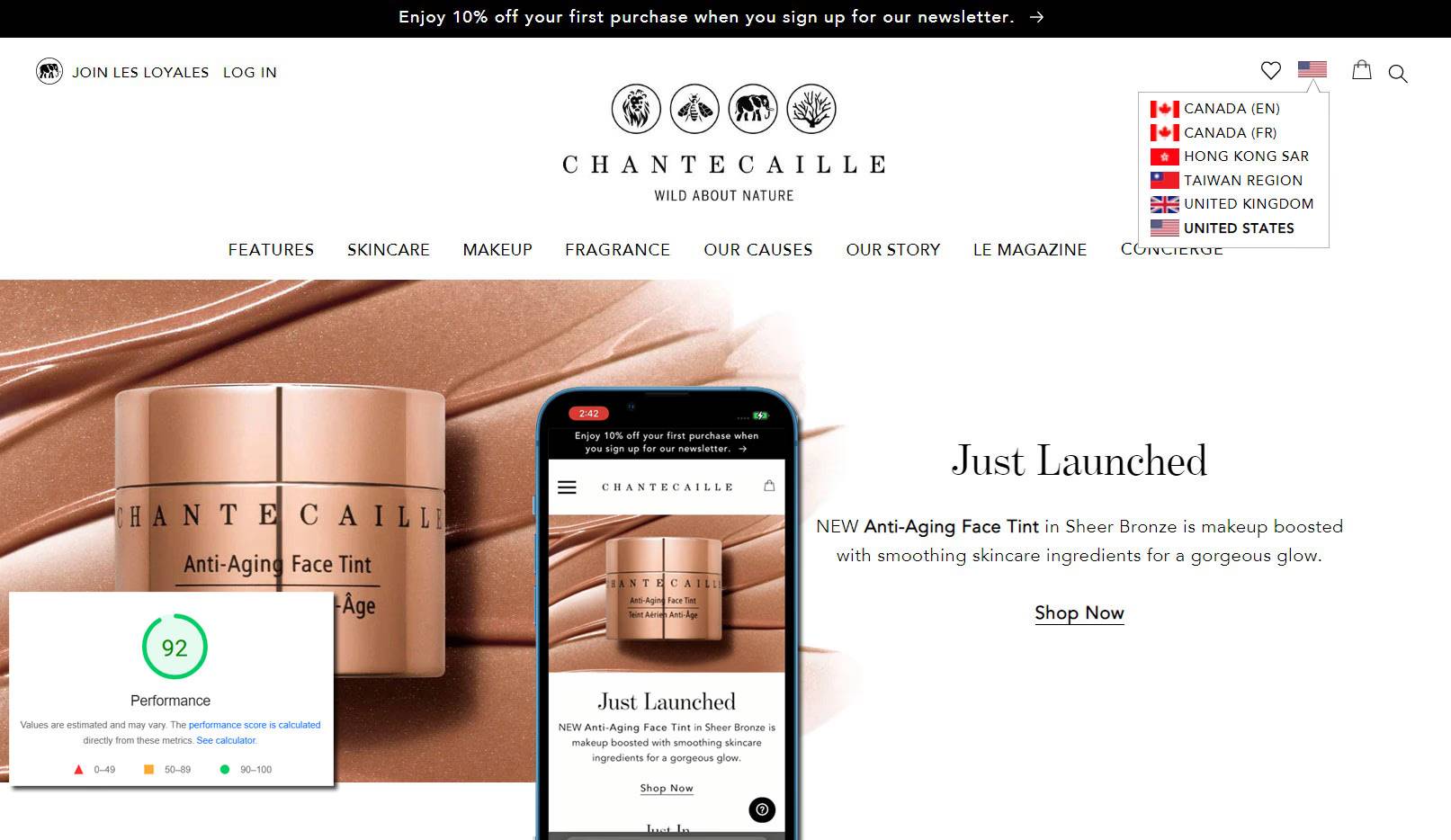
Tailor-made Shopify apps and feature enhancements built from scratch when off-the-shelf solutions just won’t do.
In the competitive world of ecommerce, standard solutions often fall short of addressing unique business requirements. While Shopify’s App Store offers thousands of options, businesses with specific workflows, complex operations, or innovative ideas frequently need custom development to fully realize their vision. Custom apps and features bridge this gap, providing exactly what your business needs without compromise.
According to Shopify Plus research, merchants with custom solutions report 40% higher conversion rates and 60% faster growth compared to those relying solely on standard apps. At Ecommerce Partners, we specialize in creating tailored applications that transform your Shopify store into a uniquely powerful business tool.
Building a custom Shopify app begins with understanding your specific challenge or opportunity. We start by analyzing your current workflows, identifying constraints, and defining clear objectives for the custom solution. This discovery phase is critical for ensuring the final product delivers exactly what your business needs.
Jackson Emery from Wallie Cases explains their experience:
“We onboarded a loyalty program but quickly figured out that it wasn’t just a plug-and-play model. There needed to be more development to accommodate the platform to our website. Ezra did a good job of understanding the vision we had and what the current problem situation was. He presented a few solutions and broke it out in phases so we could see it morph into what we wanted it to be.”
Our development process follows Shopify best practices, utilizing the platform’s robust APIs while maintaining security and performance standards. We employ a phased approach, with regular check-ins and demonstrations to ensure the solution evolves in alignment with your vision.
The Shopify admin interface provides powerful merchant tools, but businesses with complex operations often need customized workflows and additional functionality. Custom admin extensions enhance your backend experience, streamlining operations and revealing deeper insights.
Paul Goodman from Vida Group describes their needs:
“We were able to work with e-commerce partners to put in place some processes that made some of the day-to-day work more efficient and easier. They also did some straight development work, developing new features and functionality to better sell to consumers.”
These extensions can include enhanced product management tools, custom reporting dashboards, automated tagging systems, or specialized order management interfaces. By integrating directly with Shopify’s admin, these tools become seamless parts of your daily workflow rather than separate systems requiring additional logins or management.
Modern custom app development relies heavily on Shopify’s powerful API infrastructure, particularly GraphQL, which enables precise and efficient data retrieval and manipulation. Whether integrating with third-party systems or building standalone functionality, deep API expertise is essential for creating performant, reliable custom solutions.
According to Shopify Partners, GraphQL-based apps are up to 70% more efficient in their data operations than those using legacy REST APIs, resulting in faster performance and better scalability. Our development team specializes in crafting optimized API interactions that operate within Shopify’s rate limits while delivering the responsive experience your business demands.
Becky Morrison from QC Supply appreciates this technical expertise:
“Even if there were times they didn’t know the answer, they would always kind of say, ‘I’m going to do some research on this and I’ll come back to you.’ It was super helpful for them to bridge that gap and come to the table with ‘this is how this is going to work. Does that make sense for your business?'”
For businesses serving both consumers and wholesale customers, standard Shopify functionality often falls short. Custom B2B portals provide wholesale customers with tailored experiences, specialized pricing, and streamlined ordering processes while maintaining the ease of management that makes Shopify valuable.
These custom solutions typically include:
– Company-specific pricing, payment terms, and product catalogs
– Custom approval workflows for large orders
– Specialized bulk ordering interfaces and quote request systems
Frederick McDavid from Karen Finch shares his experience:
“They transformed our process from a manual nightmare into a smooth digital experience. Everything was working properly and functioned well. I also love the proactive nature of fixing issues without having to use me as a secondary touch point.”
By developing custom B2B functionality directly within Shopify, businesses can manage all sales channels through a single platform, ensuring consistent inventory, unified reporting, and streamlined operations—regardless of whether the customer is a consumer or another business.
Real-time data synchronization is becoming more essential by the day for ecommerce brands. Custom apps using Shopify’s webhook infrastructure can trigger immediate actions when orders are placed, products are updated, or inventory levels change, ensuring that all systems remain in sync without manual intervention.
These real-time capabilities power sophisticated features like:
– Instant inventory updates across multiple channels
– Automated fraud detection and order screening
– Dynamic pricing based on inventory levels or time-based promotions
Liz Cioffi from Mixology describes the impact:
“The site speed project they did made a noticeable difference. They cleaned up all the old coding on the back end of our site and worked on different product page customizations too. I think our conversion rate went up a bit after the work they did.”
Our webhook implementations follow best practices for reliability and performance, including proper error handling, retry logic, and monitoring systems that ensure your critical business processes continue functioning without interruption.
Standard checkout flows don’t always accommodate unique selling models. Whether you’re offering subscription products, bundled items, or specialized promotions like “gift with purchase,” custom feature development can transform the buying experience to match your specific business model.
According to Baymard Institute, 70% of customers abandon carts due to overly complicated checkout processes. Custom checkout enhancements can actually simplify the purchase journey while adding sophisticated functionality, striking the perfect balance between capability and usability.
These specialized purchasing features integrate directly with Shopify’s checkout, maintaining compatibility with payment gateways, tax calculations, and shipping modules while extending functionality in ways that standard apps simply cannot achieve.
Quality custom development extends beyond initial creation to include robust deployment processes and ongoing maintenance. We implement automated testing and deployment pipelines that ensure new features and updates can be safely applied without risking your live store operations.
This infrastructure includes:
– Automated testing to catch issues before they reach production
– Staging environments that mirror your live store for safe testing
– Version control systems that maintain a complete history of all changes
Paul Goodman appreciates the reliability:
“What I look for in these kinds of relationships, especially with development companies, is a sense of trust and honesty. From day one, I got that sense that these were just regular people, not salespeople. They were upfront about their pricing, commitments, and capabilities—and they always delivered on what they said.”
Our maintenance approach includes regular performance monitoring, security updates, and compatibility checking to ensure your custom solutions continue functioning flawlessly as Shopify’s platform evolves. This proactive stance minimizes disruptions and extends the lifespan of your investment.
The true value of custom app development is measured in business outcomes. Unlike off-the-shelf solutions that may provide general improvements, custom apps deliver targeted results aligned with your specific goals—whether that’s operational efficiency, improved customer experience, or new revenue opportunities.
Jackson Emery summarizes the impact:
“Everything’s gone very smoothly for our customers in our loyalty program. That part’s been really good for us because you want to increase the adoption rate and make sure people have a very seamless process. They did a really good job of making sure it was just very streamlined.”
By focusing development on your most critical business challenges, custom apps deliver outsized returns compared to generic solutions. This targeted approach means faster time-to-value and clearer ROI, making custom development a strategic investment rather than just another technology expense.
Ready to explore how custom Shopify apps and features can transform your business? At Ecommerce Partners, we combine deep Shopify expertise with custom development capabilities to build solutions that perfectly match your unique requirements. Learn more about our approach on our custom Shopify app development page.
We fine‑tune your store for faster load times and higher conversions, and offer continuous 24/7 support to keep your site at its best.
Audit Site Performance
Optimize Assets And Code
Implement Caching And Cdn
Enhance Mobile Responsiveness
Monitor And Fine-Tune Performance
Troubleshoot And Resolve Issues
Monitor Site Health And Security
Offer Proactive Maintenance
Deliver Continuous Improvements
View Details
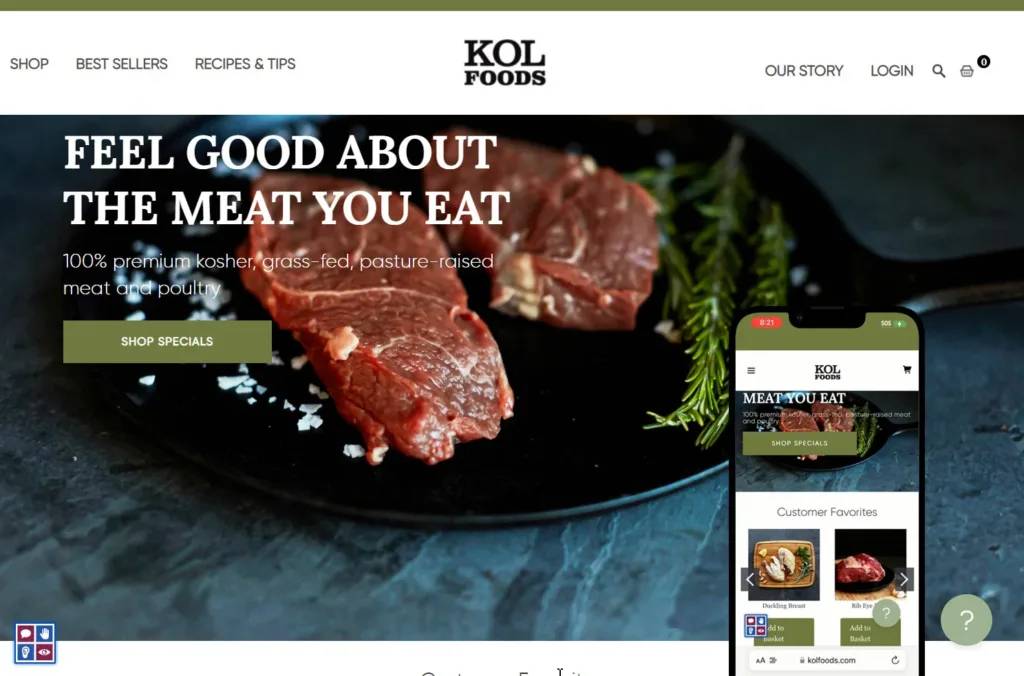
We fine-tune your store for faster load times and higher conversions, and offer continuous 24/7 support to keep your site at its best.
In today’s fast-paced digital marketplace, every millisecond counts. Shoppers expect lightning-fast experiences, and search engines reward speedy sites with better rankings. A high-performing Shopify store not only delivers exceptional user experiences but directly impacts your bottom line through improved conversion rates, lower bounce rates, and enhanced customer loyalty.
According to Google research, 53% of mobile visitors abandon sites that take longer than three seconds to load. Meanwhile, Cloudflare reports that every 100ms of improved load time can boost conversion rates by up to 8%. At Ecommerce Partners, we transform underperforming stores into conversion powerhouses through targeted optimization and ongoing support.
Every optimization journey begins with understanding your store’s current performance. Our comprehensive audit process examines every aspect of your site, from server response times to code efficiency, identifying specific bottlenecks that impact your customers’ experience.
Liz Cioffi from Mixology describes their experience:
“The site speed project they did made a noticeable difference. They cleaned up all the old coding on the back end of our site and worked on different product page customizations too. I think our conversion rate went up a bit after the work they did.”
Our performance audits go beyond basic speed tests to examine your store’s technical foundation. We analyze Core Web Vitals metrics, server configurations, third-party app impact, and mobile performance to create a prioritized optimization roadmap. This data-driven approach ensures we focus on improvements that will deliver the greatest impact for your specific store.
With audit insights in hand, we implement proven optimization techniques that transform your store’s performance. Our technical strategies address the most common Shopify performance challenges while respecting the platform’s unique architecture.
These optimizations typically include:
– Minifying and compressing JavaScript, CSS, and HTML
– Optimizing image assets with modern formats and responsive sizing
– Implementing efficient loading strategies including lazy loading and code splitting
Becky Morrison from QC Supply shares her experience:
“They did a site speed project. They cleaned up all the old coding on the back end of our site. There used to be a weird white screen in between when you’re browsing—they got rid of that. It was super helpful for them to bridge that gap and come to the table with solutions that made sense for our business.”
Beyond these foundational improvements, we often implement advanced caching strategies and content delivery network (CDN) configurations to ensure your store loads quickly for customers worldwide. These technical optimizations work together to reduce server load, minimize render-blocking resources, and prioritize above-the-fold content for the fastest possible perceived load times.
With mobile commerce accounting for over 70% of ecommerce traffic according to Statista, mobile performance is no longer optional—it’s essential. Our mobile optimization process ensures your store doesn’t just function on mobile devices but delivers exceptional experiences that drive conversions.
Frederick McDavid from Karen Finch appreciates this approach:
“I wanted someone who could still parse through all of that, work with the challenges, and do the best with the framework there. They transformed our process from a manual nightmare into a smooth digital experience. Everything was working properly and functioned well.”
Our mobile optimization focuses on responsive design implementation, touch-friendly interfaces, streamlined checkout experiences, and performance tuning specifically for mobile networks. By addressing these mobile-specific concerns, we help your store convert mobile browsers into buyers—capturing revenue that competitors with subpar mobile experiences simply miss.
Optimization isn’t a one-time project but an ongoing commitment. We implement sophisticated monitoring tools that track your store’s performance over time, alerting us to potential issues before they impact your customers or sales.
Jackson Emery from Wallie Cases values this proactive approach:
“Ezra was very calm and composed throughout the process. He asked a lot of questions just to make sure that he understood so he could communicate it to the team. And then ultimately we got it to the point where we needed to for launch purposes.”
Our monitoring systems track key performance indicators including server response times, time to first byte (TTFB), Core Web Vitals, and user-centric performance metrics. When thresholds are exceeded, our team is automatically notified, allowing us to address emerging issues before they become critical problems that affect your business.
Beyond pure performance, we monitor your store’s overall health and security. Shopify provides excellent baseline security, but custom themes, third-party apps, and integrations can introduce vulnerabilities that require vigilance.
Paul Goodman from Vida Group explains why this matters:
“What I look for in these kinds of relationships, especially with development companies, is a sense of trust and honesty. You want to work with people who you feel confident are trustworthy and will give you the right information.”
Our comprehensive monitoring includes regular security scans, PCI compliance checks, and monitoring for suspicious activities or unauthorized access attempts. We also track Shopify platform updates and ensure your theme and custom code remain compatible as the platform evolves, preventing unexpected disruptions to your business.
Rather than waiting for problems to emerge, our proactive maintenance approach systematically addresses potential issues before they impact your business. This includes regular updates to themes and custom code, compatibility testing with new Shopify releases, and periodic performance optimizations to maintain peak efficiency.
Becky Morrison describes the benefit:
“When you ask if I would recommend them, I absolutely would because Ezra was just such a good thought partner for me and really just kind of led in that project management role, just to kind of keep the task going so that we knew what the next things to touch on were and kept us all organized, which was super valuable.”
Our maintenance schedule follows best practices for timing and frequency, ensuring updates are applied during low-traffic periods to minimize disruption. This systematic approach prevents the technical debt that accumulates when maintenance is neglected, keeping your store running smoothly year after year.
Even with proactive monitoring and maintenance, questions and urgent needs still arise. Our support team provides round-the-clock assistance, ensuring help is available whenever you need it—whether that’s during business hours, late at night, or over weekends and holidays.
Liz Cioffi appreciates this reliability:
“It was good. It was timely. Good communication. I wasn’t having to keep repeating myself or reiterating what I was looking for. It was very direct and good.”
Support requests are tracked through our dedicated system that ensures nothing falls through the cracks. Priority is assigned based on business impact, with critical issues affecting sales or checkout receiving immediate attention. This structured approach ensures efficient resolution while maintaining complete transparency into the status of your requests.
The ultimate goal of our optimization and support services is delivering measurable business results. We track key performance indicators before and after optimization to quantify the impact on your bottom line.
Our clients typically experience:
– 40-60% improvement in page load times
– 15-30% increase in conversion rates
– 25-40% reduction in bounce rates on mobile devices
Jackson Emery summarizes the experience:
“The regular meetings, the regular connection calls really helped us to stay on board. Anytime we had questions or issues, I’d shoot over an email. And if he could answer via email, he would. If not, he’d always say, ‘Hey, let’s hop on a quick call.’ And then he kind of held our hands throughout that process and was a really good resource in terms of what we needed.”
These performance improvements translate directly to revenue growth, with many clients experiencing payback on their optimization investment within months rather than years. By focusing on performance as a business metric rather than just a technical consideration, we ensure your optimization strategy aligns with your overall business goals.
Technology evolves rapidly, and what constitutes “optimal performance” today may be merely adequate tomorrow. Our continuous improvement philosophy means we’re constantly researching emerging best practices, testing new optimization techniques, and bringing proven advancements to your store.
Frederick McDavid appreciates this forward-thinking approach:
“I also love the proactive nature of fixing issues without having to use me as a secondary touch point. The communication has been great. He’s always open and needed for me.”
This commitment to continuous improvement applies not just to technology but to processes as well. We regularly refine our monitoring, maintenance, and support procedures based on client feedback and performance data, ensuring we’re always delivering the most effective service possible.
Ready to transform your Shopify store’s performance and ensure its ongoing success? At Ecommerce Partners, we combine technical expertise with business insight to deliver optimization and support services that drive real results. Learn more about our approach on our Shopify optimization services page.
We help design beauitful Shopify sites that showcase your brand and most importantly work with the technology behind it!
Client Design Assessment
Client Messaging
UX UI Design
View Details

We help design beautiful Shopify sites that showcase your brand and most importantly work with the technology behind it!
In the competitive world of online retail, your website is more than just a digital storefront—it’s the embodiment of your brand experience. The most effective ecommerce designs strike a perfect balance between visual appeal and technical functionality, creating interfaces that not only attract customers but guide them effortlessly toward purchase.
According to Stanford Web Credibility Research, 75% of consumers judge a company’s credibility based on their website design. At Ecommerce Partners, we create designs that build trust, showcase your products effectively, and convert visitors into loyal customers—all while ensuring the technical foundation supports optimal performance.
Our design process begins with understanding your brand identity, business goals, and customer expectations. We conduct thorough assessments of your current design (if applicable), analyze competitors, and identify opportunities to create distinctive visual experiences that align with your target audience.
Liz Cioffi from Mixology describes their collaborative design experience:
“We showed them different other websites that we like. We talked. Told them things we liked about it and didn’t like. We also have 17 stores. So omnichannel and just making it showing the personality of the stores was a big important point for us to make sure we show that on the website.”
This collaborative approach ensures that the final design reflects your unique brand identity while incorporating proven conversion principles. Our team works closely with you throughout the process, providing clear presentations of concepts and gathering feedback that shapes each iteration of the design.
User experience (UX) and user interface (UI) design are at the heart of successful ecommerce. We craft intuitive navigation paths, strategic product presentations, and friction-free checkout experiences that guide customers from discovery to purchase with minimal obstacles.
Frederick McDavid from Karen Finch appreciates this attention to user experience:
“We were looking at things like new ways to structure our PDP pages, new sections that we could use on our homepage and other pages as well. And just like a mixture of different projects to really just smooth out the user experience.”
Our UX/UI design principles focus on creating intuitive shopping experiences through:
– Clear visual hierarchies that guide attention to key elements
– Consistent design patterns that build familiarity and ease of use
– Responsive layouts that provide optimal experiences across all devices
These principles are applied throughout the customer journey, from homepage to product pages to checkout, creating a cohesive experience that builds confidence and encourages completion of purchases.
Effective ecommerce design extends beyond visuals to encompass messaging that resonates with your target audience. We develop content strategies that communicate your unique value proposition, address customer pain points, and provide the information shoppers need to make confident purchase decisions.
Jackson Emery from Wallie Cases values clear communication:
“We talked about the customer experience that we wanted to have for our customers. Ezra did a good job of understanding the vision that we had and what the current problem situation was.”
Our approach to messaging incorporates proven persuasive techniques while maintaining authenticity to your brand voice. From compelling product descriptions to strategic calls-to-action, each element of copy works in harmony with the visual design to guide customers through their shopping journey.
With mobile commerce growing exponentially, designing for mobile users is no longer optional. According to Statista, mobile devices account for over 70% of ecommerce traffic globally, making mobile-first design essential for competitive retailers.
Becky Morrison from QC Supply explains the importance of accessible design:
“I was really kind of understanding from like a category perspective… what are customers actually clicking on? What do they actually want the filters and the categories to be? What’s the layout of how we make that shopping journey look for them?”
Our mobile design approach prioritizes touch-friendly navigation, optimized product images, streamlined checkout flows, and performance considerations specific to mobile networks. These elements come together to create shopping experiences that feel natural and intuitive on smaller screens, capturing revenue that might otherwise be lost to poor mobile usability.
Beautiful design means nothing if it doesn’t perform well technically. Our design philosophy embraces the relationship between aesthetics and functionality, ensuring that visual elements enhance rather than impede site performance.
Paul Goodman from Vida Group describes this balanced approach:
“They transformed our process from a manual nightmare into a smooth digital experience. Everything was working properly and functioned well.”
Working closely with our development team, we create designs that adhere to performance best practices from the start—properly optimized images, efficient use of animations, and strategic implementation of visual elements that won’t compromise page load times. This integration of design and technical considerations results in sites that look stunning while delivering the speed today’s consumers demand.
The success of our design work is measured in business results, not just aesthetic appeal. We track key performance indicators before and after design implementations to quantify the impact of design changes on customer behavior and business outcomes.
Typical improvements our clients experience include:
– 25-40% increase in time spent on site
– 15-30% reduction in cart abandonment rates
– 20-35% improvement in conversion rates for key product categories
By focusing on these metrics, we ensure that design decisions are based on data rather than subjective preferences, creating sites that not only look great but deliver tangible returns on investment.
Ready to transform your Shopify store with design that converts? At Ecommerce Partners, we combine creative expertise with technical knowledge to deliver ecommerce designs that drive business results. Learn more about our approach on our Shopify design services page.
Expert guidance to plan, strategize, and optimize your Shopify store so you achieve real results without the guesswork.
Assess Current Landscape
Develop Customized Roadmap
Identify Growth Opportunities
Optimize Business Processes
Provide Strategic Guidance
View Details

ECP provides expert guidance to plan, strategize, and optimize your Shopify store so you achieve real results without the guesswork.
Building a successful Shopify store involves more than just selecting a theme and adding products. The most successful merchants leverage strategic planning, data-driven optimization, and industry expertise to guide their growth. Whether you’re launching a new store, scaling an existing one, or facing specific challenges, professional consulting provides the roadmap to achieve your business objectives more efficiently.
According to Shopify’s research, businesses with strategic guidance are 63% more likely to exceed their revenue goals. At Ecommerce Partners, we provide the expert insight and analysis that transforms your Shopify store from a basic ecommerce presence into a high-performing sales channel aligned with your business vision.
Our consulting process begins with a thorough assessment of your current Shopify store, business model, and operational workflows. This holistic analysis identifies opportunities, challenges, and potential roadblocks that may be limiting your growth or efficiency.
Becky Morrison from QC Supply describes the value of this assessment:
“What I was focused on was kind of understanding from like a category perspective. Like we were really over categorized on our old website. It was really hard to navigate. And so I was really focused on what are customers actually clicking on? What do they actually want the filters and the categories to be?”
This initial assessment examines every aspect of your Shopify operation—from technical infrastructure and user experience to marketing strategies and business processes. By establishing a clear understanding of your current state, we create a foundation for strategic recommendations that address your specific needs rather than applying generic solutions.
Based on our assessment findings, we develop tailored roadmaps that outline prioritized actions to achieve your business goals. These strategic plans provide clear direction while maintaining the flexibility to adapt to changing market conditions and business priorities.
Paul Goodman from Vida Group appreciates this strategic approach:
“What impressed me most was how they took the time to understand our specific processes before suggesting solutions. They didn’t force us into a standard template, but customized everything to match exactly how we work.”
Our roadmaps typically include phased recommendations across multiple areas:
– Technical improvements and platform optimizations
– Customer experience enhancements and conversion optimization
– Business process refinements and operational efficiencies
Each recommendation comes with clear implementation guidelines, resource requirements, and expected outcomes, enabling you to execute with confidence or engage additional support where needed.
Beyond fixing problems, our consulting focuses on identifying untapped opportunities that can drive business growth. Through competitive analysis, market research, and performance data examination, we uncover strategies to expand your customer base, increase average order value, and improve customer retention.
Frederick McDavid from Karen Finch values this proactive approach:
“We had a quick brainstorm and we were able to execute. I probably wasn’t the most structured person where you’re like, hey, I want to have this meeting weekly and everything. But I do appreciate the package and the communication feels tailored to exactly what I’m looking for as a consumer.”
We analyze your product portfolio, customer segments, marketing channels, and conversion funnels to identify specific opportunities for growth. These insights often reveal quick wins that can be implemented immediately alongside longer-term strategic initiatives that build sustainable competitive advantages.
Operational efficiency directly impacts profitability in ecommerce. Our consulting identifies bottlenecks and inefficiencies in your business processes, recommending streamlined workflows that save time, reduce errors, and improve the customer experience.
Jackson Emery from Wallie Cases describes this benefit:
“Ezra understood it. We brought on our representative. She kind of explained things. We talked together. Ezra did a good job of understanding the vision that we had and what the current problem situation was. He also presented a few solutions.”
These optimizations often focus on order management, inventory synchronization, customer service workflows, and fulfillment processes. By aligning your operations with Shopify’s capabilities and integrating strategic third-party solutions, we help create a more efficient business that can scale without proportionally increasing operational costs.
Successful ecommerce businesses make decisions based on data rather than assumptions. Our consulting helps you implement proper tracking and analytics frameworks, then teaches you how to interpret this data to make more effective business decisions.
According to McKinsey research, data-driven organizations are 23 times more likely to acquire customers and 6 times more likely to retain them. Our approach helps you join these high-performing businesses by establishing the right metrics for your specific goals.
Becky Morrison appreciates this analytical approach:
“Ezra was just such a good thought partner for me and really just kind of led in that project management role, just to kind of keep the task going so that we knew what the next things to touch on were and kept us all organized, which was super valuable.”
We help you move beyond basic traffic and revenue metrics to more sophisticated analysis that reveals true business insights—customer lifetime value, acquisition costs by channel, product performance by segment, and other key indicators that drive strategic decision making.
Strategic recommendations provide value only when effectively implemented. Our consulting includes practical guidance on execution, whether you’re implementing changes with your internal team or engaging additional resources.
Liz Cioffi from Mixology values this implementation focus:
“They gave us different options of how to go about the projects they’re working on. They explained like we could do this or we can do this to fix the problem before going with whichever we chose.”
This support may include detailed technical specifications for developers, training for your team on new processes, or guidance on selecting and managing specialized partners for specific initiatives. By bridging the gap between strategy and execution, we ensure that recommendations translate into real business improvements rather than remaining theoretical.
The ultimate measure of consulting effectiveness is business impact. We establish clear metrics at the beginning of our engagement and track progress against these objectives throughout the implementation of our recommendations.
Our consulting clients typically experience:
– 30-50% increase in conversion rates through optimized user journeys
– 25-40% improvement in operational efficiency through streamlined processes
– 40-60% growth in average order value through strategic merchandising and pricing
These improvements compound over time as the fundamental structures of your business become more aligned with best practices and your specific competitive advantages. At first you may see incremental growth, which then leads to transformational change that positions your business for sustainable success.
Ready to transform your Shopify business with expert strategic guidance? At Ecommerce Partners, we combine deep Shopify expertise with business acumen to deliver consulting that drives measurable results. Learn more about our approach on our Shopify consulting services page.
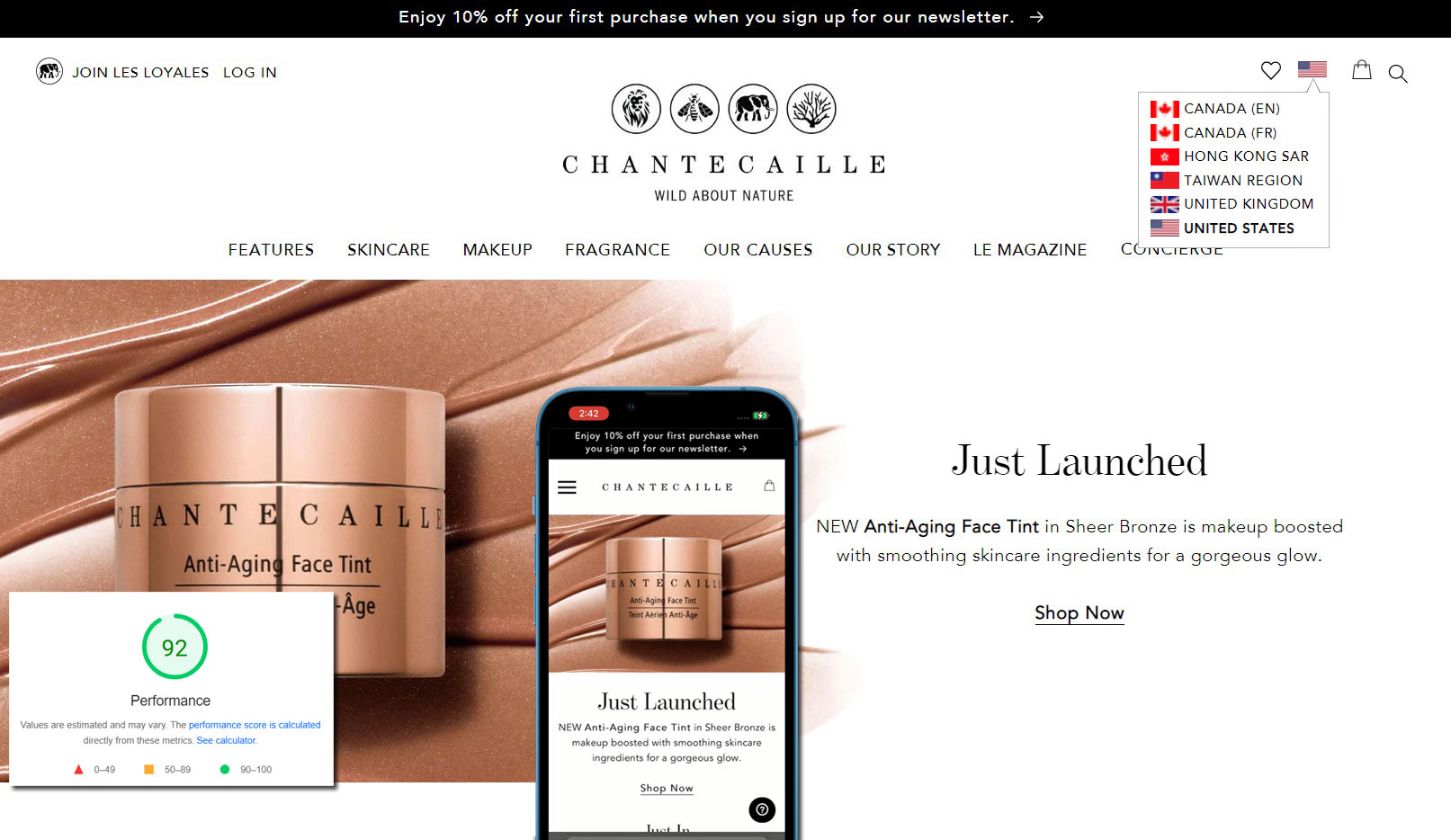
Page Speed
ERP Integration
Klaviyo Integration
Tableau Integration
Custom App Creation
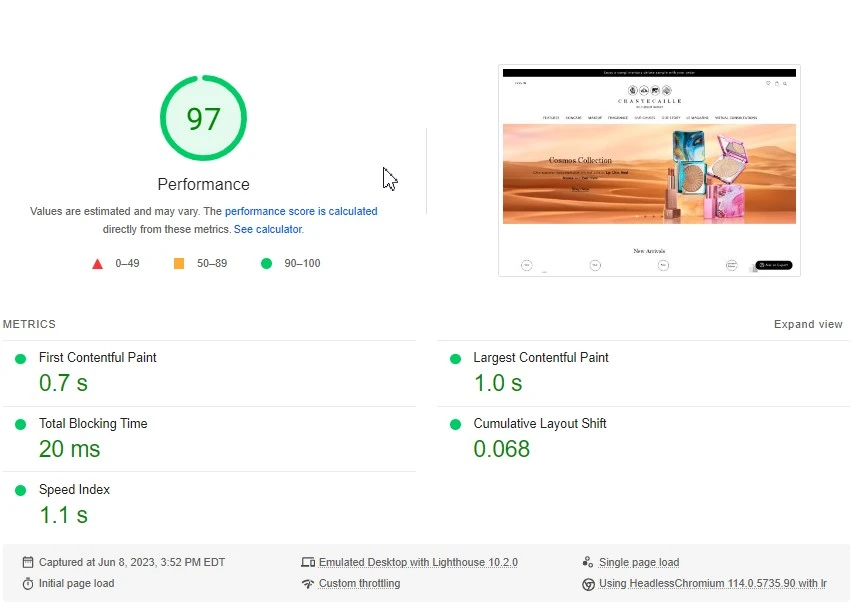
Chantecaille is a skincare brand specializing in natural beauty products, powered by high concentrations of pure botanicals and soothing, plant-based ingredient that is exploding in popularity and needed a solution to keep up with growing demand not just in the US, but worldwide. This solution needed to take into account the needs of each market, including language, price, currency, product selection and local marketing. In addition, the site had to be optimized for Google Pagespeed and ADA compliant. and online sales.
Ecommerce Partners built multiple stores for their worldwide presence in the US, UK, Taiwan, Hong Kong and South Korea.
Completely customized design with editable style elements including homepage and top navigation.
Optimized for Google Pagespeed
Mobile Pagespeed score increased from 12 to 56
Desktop Pagespeed score increased from 11 to 92
ADA remediation
Streamlined product page with video, ingredients and enhanced product content
ERP integration
Shopping Gives integration
Full google analytics integration
Custom product badges
Shipping customizations
Klaviyo integration including back in stock and coming soon flows
Mini cart coded in speed optimized JS
Created custom app for gift with purchase, samples, free product discount codes, and special pricing cross-sells all working with multiple currencies and scheduling
Tableau integration
Yotpo loyalty and reviews integration
User checkout and login phone authentication
Language translation
LMS loyalty integration
Ecommerce Partners also provides monthly support and maintenance through their customer support team. We are always looking at Shopify’s newest technology and how it can be added into the Chantecaille website to enhance user experience and streamline backend services.
50% Growth in Online Sales: The new digital strategy drove more users to their website.
10K New Followers: Instagram gained a loyal audience.
Loyalty Boost: Introduced a membership program, converting 40% of first-time buyers into repeat customers.
“Quote added here.”
– First and Last Name, Founder of Chantecaille
Mobile Pagespeed score increased from 12 to 56
Desktop Pagespeed score increased from 11 to 92

Cookie GDPR/CCPA Compliance
Amazon Integration
Updated Returns/RMA module
Preorder functionality with ERP integration
Klaviyo integration

UX Research
UI Design
Framer Development
Content Strategy
SEO & Performance
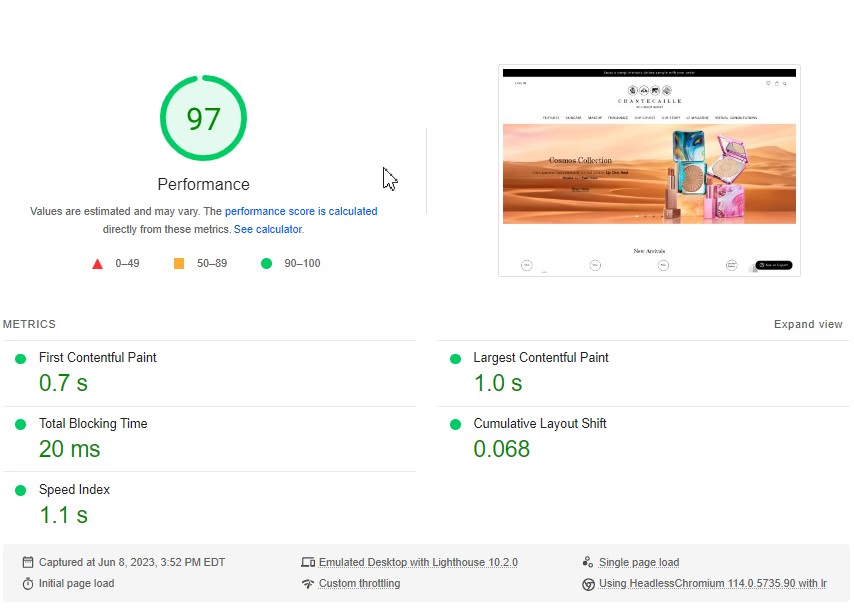
QC Supply provides products and services to farmers and homesteaders across the United States for over 40 years. Their current ecommerce platform was based on Magento and had many problems. Their Magento website was based on an aging platform and they needed a modern solution. QC Supply approached Ecommerce Partners after one of their partners, Network Doctors, a top managed IT support company, referred them to find a solution that will modernize their website and set them up for the next 40 years.
ECP’s first task was to gather all requirements for QC’s website business in order to recommend a platform that will work best for them. They conducted extensive interviews with each department to make sure that all stakeholders were taken into account when making their recommendation. There were many requirements to take into account, including heavily customized ERP integrations, ease of use, user and staff permissions, scalability, security, comprehensive API needs, website speed, complicated shipping quoting, complex tax and extensive B2B functionality.
Ecommerce Partners recommended the Shopify Plus platform because it has built in B2B functionality and integrates easily with most third party software companies. Shopify is easier to work with than other platforms which makes development time faster and cheaper. Shopify has the best built-in user experience of any ecommerce platform and introduces improvements faster and more often than any other platform on the market.
The development process was divided into two phases in an effort to quickly stand up a brand new site and user experience. Together with QC Supply, Ecommerce Partners divided all tasks into a prioritized list and got to work.
ECP delivered a fast (Google Pagespeed 77 mobile / 94 desktop), ADA Compliant B2B and B2C Shopify website with a dedicated B2B Pro Portal that allows admin users to create locations, sub users and permission based product purchasing using Shopify Companies, Catalogs and Location functionality.
1
We dive deep into understanding your brand, goals, and audience. Through collaborative discussions and research, we craft a clear roadmap tailored to your needs.
2
Based on our conversation, we create a tailored roadmap that outlines a clear path forward with realistic milestones.
3
Once the project is underway, we deliver results quickly and keep communication open. In a short amount of time you will see progress. Our goal is to earn your confidence with every step.
4
When you’re ready, we become your trusted, long-term development partner—supporting and growing your Shopify store as your business evolves.
Generic Solutions
Slow Turnarounds
Hidden Fees
Hard-Sell Tactics
Outdated Methods
Limited Scope
Jargon Overload
Junior Dev Teams
No Accountability
Just Another Client
Personalized Plans
Fast Turnarounds
Transparent Pricing
Long-Term Partners
Innovative Tools
Real ROI
Plain Talk
Seasoned Experts
Proactive & Responsive
Passion & Care










"
"In the situations where we needed something done more quickly and more efficiently we would give that to Ecommerce Partners just because they were able to be more responsive and and act more quickly the other the other company is much larger and in some ways was kind of bogged down by their processes, their own internal processes."

Paul Goodman
Head of eCommerce & Direct to Consumer
"
“Ecommerce Partners is professional, knowledgeable, and flexible. Those were kind of like the big three things that I really leaned on because I swear there were times and that I felt like EP was probably thinking, ‘What are these people doing’? But they always just led us through it and were super patient. I really just appreciated that. I really appreciated that partnership.”

Becky Morrison
Director of E-Commerce
"
"We went with them because it was a general feeling of trust based on what they showed us they can do and the sense of their technical capacity. They came with ideas that sounded right. In the end, depends on the salesmanship and the technical ability and they were strong in both."

Gidon Van Emden
CEO, Kol Foods
"
"Communication has been great. They're always open and there when I need them. I'm probably not the most structured person but their weekly meetings kept things moving forward on track. I do appreciate the package and the communication feels tailored to exactly what I'm looking for as a consumer, and that's very important to me."

Frederick McDavid
Ecommerce Director
"
"We were early online. We built a website way back in the late 90s on, I believe and then eventually it was time to move. And so when we were building a new site, we were introduced to Ecommerce partners and they built our first site for us. I love those guys. They are a solid team and the big thing is that they care. No matter when 24-7 if we had a problem, they’re all over it."

Ian Ginsberg
President at C.O. Bigelow Chemists
"
"You know, there's always a feeling like, is the agency we're using doing the best possible job? And would a change ever be good? When we switched to Ecommerce Partners it made me realize the good work I get out of the team, how professional they are, and how they're willing to, even though they didn't build the site, come in and again become our trusted support team for the day-to-day operations."

Kristin Darien
VP of Digital and E-commerce
QC Supply Shopify Platform Migration
Becky Morrison, Director of Ecommerce
Kirrin Finch Shopify Technical Integrations
Frederick McDavid, Ecommerce Director
At Ecommerce Partners, our journey began with a simple idea: even the most complex eCommerce challenges can be solved with genuine expertise, a friendly approach, and a healthy dose of coffee-fueled creativity. What started as intimate brainstorming sessions among a small team of developers, strategists, and problem solvers has grown into trusted partnerships with mid-sized eCommerce businesses. We don’t aggressively push contracts—we earn your trust with transparent communication, honest scoping, and by always keeping our promises.
Our mission is to empower mid-sized eCommerce businesses with expert, flexible, and trustworthy development solutions—delivered responsive, hands-on partnerships—while our vision is to create smart, scalable Shopify solutions and to educate you along the way, ensuring that every decision is clear and every step forward is taken with confidence.
Let’s build something extraordinary together!

Head Developer

Frontend Developer
The trust we earn from clients starts with the culture we've built within our own walls. Our close-knit, collaborative team invests in ongoing learning, open communication, and a genuine passion for every project. This strong internal foundation fuels the consistent, high-quality solutions that help our clients thrive.
If you can't find the answer, we're happy to dive in deeper. Fill out the form below!
While Shopify is user-friendly for basic setup, scaling a successful ecommerce business often requires technical expertise. Hiring a Shopify expert or agency saves you time and helps you avoid costly mistakes. We bring years of experience and in-depth knowledge of Shopify’s platform, so tasks that might take you days or weeks to figure out can be done in hours. Moreover, experts can implement advanced customizations (for design, checkout, etc.) that aren’t possible with DIY methods. As one source notes, when your project gets complex – “scaling your store, migrating from another platform, or customizing every detail – a Shopify Plus development partner can make all the difference,” ensuring you get the most out of Shopify’s capabilities. In short, a Shopify expert helps you launch faster, run smoother, and ultimately drive more sales by doing things the right way from the start.
Timeline depends on complexity. A simple Shopify store using a pre-made theme with minimal customization can be launched in a matter of weeks. On the other hand, a fully custom design and Shopify Plus build with integrations can take a few months. For example, our typical project for a mid-sized ecommerce site (custom design, some custom features) might be ~8–12 weeks from kickoff to launch. We work with you to define milestones and a schedule. If you have a specific launch date in mind (say, to align with a marketing campaign or seasonal launch), let us know – we can often prioritize critical features for that deadline and roll out secondary features in phases. During the free consultation, we can usually give a rough time estimate based on what you need.
Absolutely. A large portion of our work is with existing Shopify merchants. We can do a comprehensive audit of your current store – reviewing your theme code, app setup, site speed, SEO, etc. – and then execute improvements. Whether you need a visual redesign, a new feature (like adding subscriptions or multilingual support), or a cleanup of issues, we’re on it. We also assist with platform migrations (e.g., from Magento, WooCommerce, BigCommerce to Shopify), where we carefully import products, customers, and orders and ensure redirects/SEO are handled. If your store is already live and you’re experiencing problems (slow speed, bugs, integrations not working), we offer troubleshooting and rescue services. Think of us as your on-demand Shopify tech team – we can engage for a one-time fix or as ongoing support.
Yes, Ecommerce Partners is a recognized Shopify Partner, and we have extensive experience with Shopify Plus. While Shopify doesn’t have a public “certification” program in the way some platforms do, being a Shopify Plus Partner means we’ve demonstrated expertise in launching and managing Shopify Plus stores. We’re very familiar with the exclusive features of Plus (like Scripts, Flow, Launchpad, wholesale channel) and have direct contacts within Shopify to escalate support for our Plus clients. If you’re considering Shopify Plus, we can provide guidance on the upgrade process and leverage our partner resources to your benefit. On the flip side, if you’re not on Plus, rest assured we bring the same level of expertise to regular Shopify projects too.
We offer ongoing support plans tailored to your needs. This can range from ad-hoc support (you reach out when you need us for updates or issues) to a more structured monthly retainer where we allocate a certain number of hours to your account for continuous improvements. Support can include updating apps and themes, security monitoring, performance tuning, adding new features as your needs evolve, and just being there to answer questions (“How do I do X in Shopify?”). We also provide emergency support for critical issues – if your site goes down or something is preventing checkouts, we treat it with top priority. Our goal is to build a long-term relationship, acting as an extension of your team. Many of our clients have been with us for years, continually evolving their stores. We’re happy to be your go-to Shopify experts for the long haul.
In most cases, yes. We’ve yet to meet a system we couldn’t integrate with Shopify in some fashion. We use Shopify’s API and sometimes middleware to connect Shopify with ERPs (like SAP, Oracle, Microsoft Dynamics), CRMs (Salesforce, HubSpot), IMS/WMS (inventory and warehouse systems), POS systems, and more. Integration might involve real-time sync or periodic batch updates, depending on the system’s capabilities. If the system has its own API, we can likely write a custom integration or use existing connectors. For example, we’ve integrated Shopify with accounting software (QuickBooks, Xero), marketing platforms (Mailchimp, Klaviyo), and even bespoke in-house databases. During our consultation, let us know what system you need Shopify to talk to. We’ll outline an approach – whether it’s using an existing app or a custom integration. Our powerful ECX (E-Commerce Exchange) platform was built for this purpose: to act as a flexible connector between Shopify and any other system, ensuring data flows smoothly no matter how complex your tech stack is.
Our team provides continuous maintenance, 24/7 support, and regular updates to keep your store running smoothly.
Fill out our form to schedule a free Shopify Project Assessment. We’ll discuss your needs, create a tailored plan, and guide you through the process.
Every problem is unique—but chances are we might have seen something like it before. Let's work together and solve it today!

